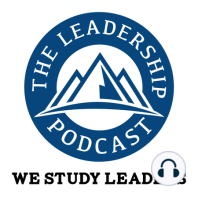33 min listen

TLP107: On Responsibility: Patagonia’s Chief Storyteller & Director of Philosophy
TLP107: On Responsibility: Patagonia’s Chief Storyteller & Director of Philosophy
ratings:
Length:
45 minutes
Released:
Jul 18, 2018
Format:
Podcast episode
Description
In this episode, Jim and Jan welcome Vincent Stanley, Co-Author of The Responsible Company, visiting Fellow at the Yale Center for Business and the Environment, and Director of Philosophy / Chief Storyteller at Patagonia. Vincent shares the evolution of both product design and company leadership since his start at Patagonia in 1973, and the ways they integrate new employees with existing culture. He speaks to what makes Patagonia’s story unique and authentic, the burdens of being responsible, and offers advice to those looking to be change agents and storytellers within their own community. Vincent believes that one of the most important responsibilities we have is the right to be responsible. Key Takeaways [2:39] Vincent has been at Patagonia on and off since 1973, and is the nephew of the founder, Yvon Chouinard. He and his uncle co-wrote The Responsible Company with two different yet powerful intentions. Yvon wanted to create something practical for people who are motivated to see how Patagonia operated as a business over the past several decades. Vincent’s motivation was to come to an understanding the core culture. These responsibilities encompassed much of what we saw was important in the early 1960’s. [3:35] Vincent discusses how people are yearning for full agency throughout their day. He discusses the traditional 1960’s corporate model where businesses focused both on the financial health and bottom line of a company, and also the strong commitment to honor the employees, customers and community of which they serve. Patagonia took this and added in environment, as this area has been compromised immensely by population and economy growth over the past several decades. [6:52] When Vincent started work in the 1970’s, the population was now 3.8 Billion. It is now doubled, with economic activity up 500%. This has put tremendous pressure on economic and social systems, so Patagonia aims to do their part to stay responsible to traditional stakeholders, and our original CEO, nature. [7:11] Leadership at the top is important, but there must also be a strong middle management with a sense of agency built into everyone’s role. The more coworkers that feel a kinship and responsibility to help others in the company, the easier it is to add new people while helping current ones expand their skills. [11:35] Vincent’s discusses what the title of Chief Storyteller means to him, and Patagonia as a company. He helped write some of the early catalogs and business philosophies, so he pulls from the foundation of their core values and creates the story to reflect their authentic meaning in today’s world. Vincent feels as though Patagonia’s success in its ability to be a model for other companies, is that their stories are based in reality and not to create spin. Patagonia’s story is complex, however it’s important for the story to consistently build credibility and trust with employees, customers and suppliers. [13:23] There are many fibers woven into Patagonia’s story. One being their position as an outdoor gear company, with products designed for technical performance. Then, the origin story of the company coming out of climbing equipment, and their community activism; donating 1% of sales to environmental causes; and use of catalogs and websites to educate the general public. [14:57] Vincent shares a story on when they changed to organic cotton, and how they took steps that entailed a financial risk in order to do the “right thing”. It was a huge move, as they broke their connection to the global supply chain. They took providing an explanation to everyone involved very seriously, and bussed 40 people in at a time from all different departments to cotton fields. Here they could see the difference between conventional cotton and organic cotton, and now the reason for the change went from abstract to tangible. They invested both time and money in explaining why the change, and it paid off in dividends. [20:20] One of Vincent’s key
Released:
Jul 18, 2018
Format:
Podcast episode
Titles in the series (100)
TLP006: Get to Know the Hosts of The Leadership Podcast: The inspiration behind this endeavor and what listeners should expect to gain from it. by The Leadership Podcast